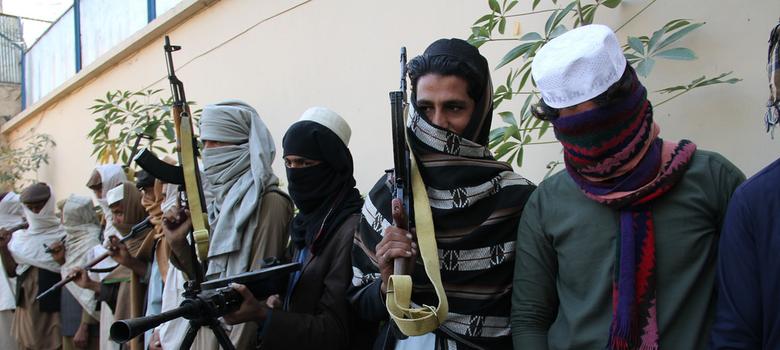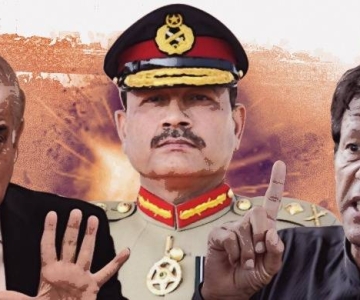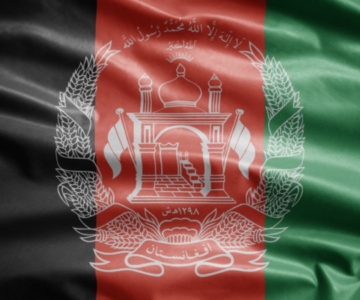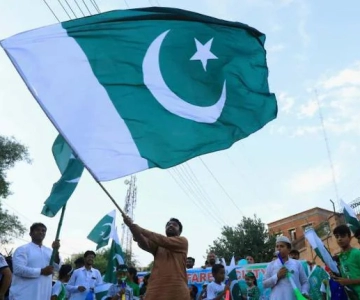There’s a lot Pakistan could do to root out terrorism. But will it?
It is being seen as a watershed moment in Pakistan, the December 16 massacre of 142 children and teachers in Peshawar. Pakistan’s civilian and military leadership has vowed to act against the Tehreek-e-Taliban Pakistan. The first policy response was to lift the moratorium on the death penalty. Human rights campaigners say this may not be the appropriate response to the challenge that Pakistan faces. There are over 6,000 inmates on death row in Pakistani jails.
A committee of parliamentarians met on Friday to discuss the way forward. Earlier this year, Pakistan’s cabinet and the National Assembly endorsed an internal security policy that, among other measures, called for intelligence coordination, a special counter-terrorism force and steps to de-radicalise society. The policy has not been implemented because political turbulence since July has prevented the Nawaz Sharif government from focusing on policy decisions. Fearful that the Imran Khan-led political agitation has the backing of sections of the military-intelligence complex, Sharif has been busy just finding ways to survive.
After the December 16 massacre, however, the Pakistani public is asking for concrete action. It is looking to the government to deliver. Will it rise to the occasion? There are six key policy planks that the civilian government will have to decide on, and take the military on board for them to be implemented. Without a civil-military compact, such changes may not be possible.
1. Stop differentiating between “good” and “bad” Taliban. Pakistan needs to implement in letter and spirit Prime Minister Nawaz Sharif’s statement after the Peshawar massacre that there is no good or bad Taliban. This is not the first time this promise has been made. Pakistan’s security policy has had a high tolerance for militant groups seen as not being opposed to Pakistan, and these are seen as the “good Taliban”.
The country’s security policy has traditionally supported jihad movements against neighbouring countries. Without revising the perspective on the jihad infrastructure that exists within Pakistan, it would not be possible for the Tehreek-i-Taliban Pakistan to be crushed (to action demanded by large sections of the Pakistani public). The TTP gets oxygen from the jihadst narrative and infrastructure of the acceptable groups such as the Afghan Taliban.
2. Re-think Pakistan’s foreign policy. Without Afghanistan’s support, the leadership of TTP cannot be detained and the strategic space in the border areas cannot be secured. For this to happen, Pakistan has to build a relationship of trust with the Afghan government and its people. Pakistan can be a broker of peace by facilitating a peace agreement between the Afghan Taliban and the Afghan government. This intent needs to be made clear.
Simultaneously, Pakistan should re-engage with India to find a way to avoid proxy wars on Afghan soil. Meaningful legal action to punish those responsible for the 26/11 Mumbai attacks in 2008, would be the right way of establishing a relationship of trust with India.
3. Act against the sectarian militants. Along with the anti-Pakistan TTP, the country also needs to act against sectarian militant groups, not least because these are allied with the TTP. Anti-Shia groups and their leaders operate with impunity, mobilise cadres and have expanded the madrassa network into the land of Sufis, the Sindh province. The strategic alliance of intelligence outfits and political parties with these groups is well known. It is time to undo that. Never was public opinion on the side of the authorities in Pakistan to make such decisive decisions.
4. Give teeth to the National Authority for Counter Terrorism. The moribund National Authority for Counter Terrorism has to be revived with resources and staff. It also needs effective powers to deal with a plethora of security agencies across the country. By its own admission, the government has identified 33 intelligence agencies that work across the country. Evidently, they don’t share information with each other. There is a huge de-radicalisation agenda that NACTA could deliver upon. The prime minister has to take charge of it, and not appear as someone disengaged from this crucial institution.
5. Regulate the madrassas. Banning militant groups, nabbing their leadership and curtailing their financial networks may not work if the network of madrassas across the country is not regulated. Over 30,000 madrassas flourish in Pakistan. Their contribution to education is not immense: they barely cater to 3%-4% of school going kids. Quite a few (but, one must add, not all) produce soldiers and martyrs-to-be. Their curricula, their funds, staff and operations have to be brought under the ambit of law. If that is not done, counter terror operations would remain incomplete.
6. Curb hate speech. The Pakistani state allows religious and sectarian hate to flourish through mosques, madrassas and jihadi literature. Provincial governments are not delivering on existing legal framework that calls for checking the misuse of mosque loudspeakers, wall chalking, publications and most critically, the mosque sermons that incite and justify violence.
Given Pakistan’s history, it is unlikely that the civilians and the military will get together and make these happen.



